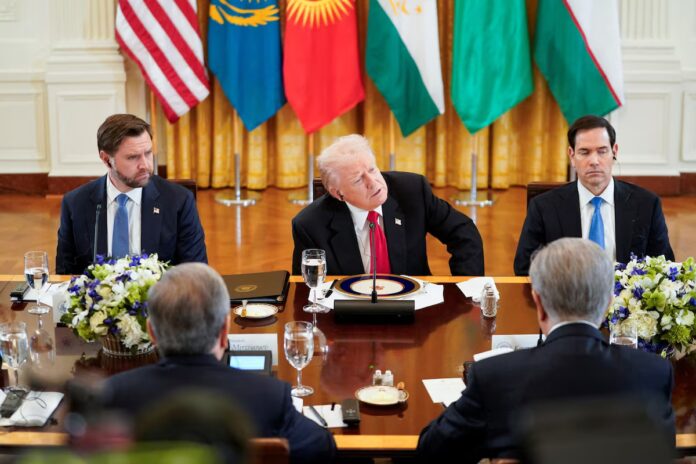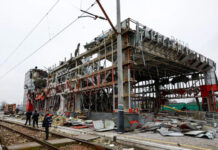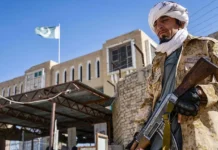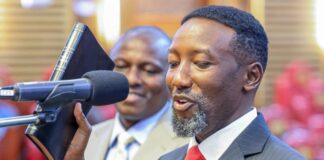
U.S. President Donald Trump on Thursday met with the leaders of five Central Asian nations at the White House, calling critical minerals a “key priority” as his administration seeks to secure and expand U.S. supply chains through new global partnerships.
The summit brought together the presidents of Kazakhstan, Kyrgyzstan, Tajikistan, Turkmenistan and Uzbekistan under the C5+1 platform, launched in 2015 to promote cooperation on economic, energy and security issues.
The talks come as Washington intensifies efforts to counter Russian and Chinese influence in the resource-rich region, which holds vast reserves of uranium, copper, gold and rare earth elements vital to global industries.
“Central Asia is an extremely wealthy region, and one of the key items on our agenda is critical minerals,” Trump said before a dinner with the leaders. “My administration has strengthened American economic security by forging agreements with allies and friends across the world to broaden our critical mineral supply chains.”
During the meeting, Kazakhstan’s President Kassym-Jomart Tokayev hailed the summit as “the beginning of a new era of interaction between the United States and Central Asia,” and announced that his country had joined the Abraham Accords, normalizing ties with Israel.
Uzbekistan’s President Shavkat Mirziyoyev praised Trump as “the president of the world” and proposed establishing a permanent C5+1 secretariat in Central Asia.
Later, Trump revealed that Uzbekistan plans to invest and purchase more than $100 billion in U.S. industries over the next decade, including in critical minerals, aviation, and automotive sectors.
The U.S. and Central Asian nations also signed a memorandum on critical mineral cooperation. Among the commercial deals announced was an agreement for Boeing to sell up to 37 aircraft to airlines in Kazakhstan, Tajikistan and Uzbekistan.
In addition, U.S.-based Cove Capital will begin tungsten mining operations in Kazakhstan with government-backed financing.
Analysts say Washington’s push reflects growing concern over China and Russia’s dominance in regional mining and infrastructure networks.
“As China and Russia entrench their control over the region’s mining, processing and infrastructure systems, Washington is seeking to establish a tangible foothold through targeted strategic projects,” said Gracelin Baskaran of the Center for Strategic and International Studies.
Central Asia’s mineral wealth is strategically significant for the United States. Kazakhstan alone supplies nearly 40% of global uranium output, while Uzbekistan ranks among the top five producers.
Together, the two nations account for just over half of the world’s uranium production, an essential input for U.S. nuclear power, which provides a major share of the nation’s electricity.
Under Trump, the U.S. has pursued a multi-pronged strategy to diversify critical mineral sources and reduce dependence on China, which dominates the global supply of rare earths, uranium, titanium and other strategic metals.
Beijing has previously restricted exports of key materials, prompting Washington to accelerate efforts to build alternative supply chains through new alliances.
Source: Reuters
Written By Rodney Mbua


















